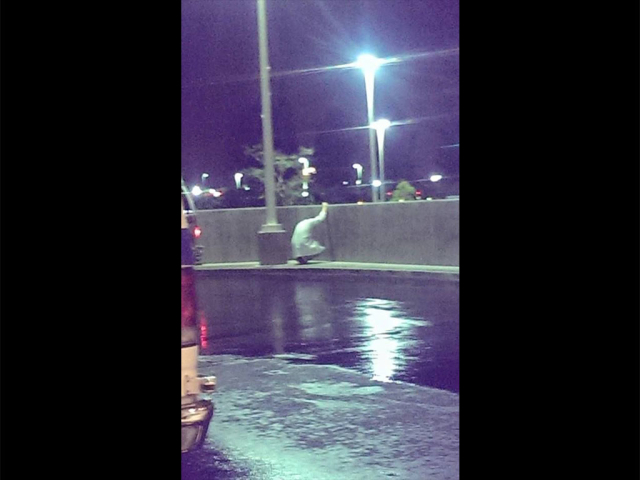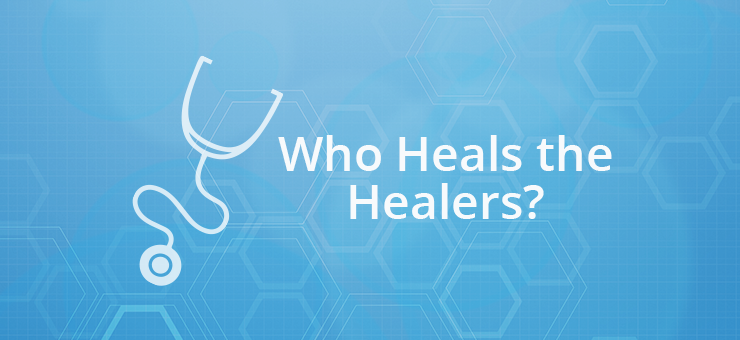Who heals the healers?
When I was ten, my grandfather suffered his third and final heart-attack in as many decades. The attending physician performed a coronary artery bypass, and an angioplasty, but neither was enough. Two days later, he advised us to pull the plug. Several hours later, the ventilator was switched off and Grandpa was no more.
Sadness and anger consumed me . The former for Grandpa, and the latter directed at the cardiologist who advised us to unplug the ventilator. I don’t think I could’ve ever forgiven him, had I not unwarily walked into his half-open office room and seen him sobbing profusely behind a large oak-wood desk.
When he noticed this unlikely intruder in his room gazing at him with blank look on his face, he almost instantly wiped off his tears, found his voice, and asked me how he could help me?

Forward thirteen years: Right outside a South Californian hospital, where he has just conducted an operation, an ER doctor mourns the loss of a 19-year-old-patient. Unaware that his colleague captured the incident, a picture that would later travel (and temporarily rule) the world of cyberspace, the kneeling doctor rests his half-closed fist on a concrete slab, head bowed; and continues to cry.
Among the medical community on social media, there were different explanations as to what this doctor felt. Was it helplessness, devastation, failure, self-doubt, or simply plain old remorse? Or maybe a combination of some, all, or even none of those emotions?
Whatever the doctor is feeling, and despite the image’s low quality resolution, two things are certain: emotions are oozing out of the image, and medical professionals can relate to this image. And why is that? Because healthcare providers have long been considered apathetic, dispassionate, and unemotional, almost villainous figures, that only care about their pay check; this image shattered all such stereotypes.
The general public does not realize that it is not the person, but the job that requires strength. Physicians are not devoid of emotions; however, their role requires them to limit the demonstration of these emotions.
If you look at physician burnout rates, half of all med students experience burnout, 25-75% of residency professionals experience burnout, and about 30% of doctors experience physician burnout (with some estimates showing up to 60%). High rates of suicide, depression, addiction, and the use of firearms among the physician community all point towards the copious amounts of emotional stress associated with this profession.
This sacrifice of emotions, that at many times affects the well-being of the physicians themselves, is one that patients and their families must be made aware.
Going back to 2002, as I exited the cardiologist’s room I asked my mother one question, “Who heals the doctors?” In 2015, I’m still waiting for an answer.
How the medical community responded to losing a patient
Using the hashtags #LosingAPatient and #HoldingBackTears I asked physicians, nurse practitioners, and other care providers what it meant to them.
Here’s what some of them had to say:
@dschwartz20 The anesthesiologist-patient relationship is deeply personal. We grieve but our other patients depend on us to give them 100%.
— Ed Mariano, MD (@EMARIANOMD) May 5, 2015
@dschwartz20 Family docs develop long term relationships w our patients. I aim 2 be helpful to pt & fa by ensuring dignity & support to end — Astrid Almodovar, MD (@doctorastrid) May 5, 2015
@dschwartz20 Virtually all pts I’ve worked with as an RN who died or were at EOL stage were palliative/hospice/DNR. We didn’t “lose” them. — Olga Jarrín (@OJ_RN) May 5, 2015
@dschwartz20 Different physicians cope differently and it all depends on the case. In some cases, a patient will die despite all efforts. — Do Nguyen MD (@1lifespan) May 5, 2015
Others pitched in with interesting answers:
@dschwartz20 Like landing a plane – if time and circumstances allow, try for smooth landing (EOL plan, #hospice, #palliative) – o/w #crash!
— Chris Flores, MD (@ChrisFloresMD) May 5, 2015
Others spoke their heart:
@dschwartz20 no simple answer, but I think we can honor the patient by holding what we learned from them closely & sharing with colleagues
— Jameson Voss MD MPH (@JamesonVoss) May 6, 2015
@dschwartz20 I don’t know that I could put it into words — Brittney Wilson, BSN (@TheNerdyNurse) May 5, 2015
@dschwartz20 In ophthalmology we enjoy longstanding relationships-dealing with pt loss & their survivors is hard.Tears if genuine aren’t bad
— Jane Hughes,MD (@janehughesmd) May 6, 2015
Some were emotional:
@dschwartz20 we get engaged emotionally with each and every patient and their stories surely effects me on a personal level. — Galal Gargodhi (@jello_81) May 5, 2015
@dschwartz20 it never leaves you.
— Deborah Gilboa, MD (@AskDocG) May 5, 2015
@dschwartz20 me too, some days. — Deborah Gilboa, MD (@AskDocG) May 5, 2015
@dschwartz20 @EMARIANOMD devastating, self doubt, guilt…
— leslie garson M.D. (@DrLesGarson) May 5, 2015
Some reiterated the importance of giving it their best shot:
@dschwartz20 That’s all any of us can do is to give our best efforts. As long as I feel like I did everything I can, I can move on easily. — Do Nguyen MD (@1lifespan) May 5, 2015
Some were left to ponder, but they quickly move on, as many others need their help:
@dschwartz20 If I feel like something could have been done differently, I will dwell on the case for a while and learn from it. — Do Nguyen MD (@1lifespan) May 5, 2015
@dschwartz20 @Onlyanurse2013 In LTC I’ve been w/many on the last journey some w/family, some alone, all went w/my love, care, & comfort — J Keith MacDonald RN (@MacdonaldJkeith) May 5, 2015
Some helped spread the word:
Happy to help. DM pls @dschwartz20: @DrMStiegler I’m writing a post on how physicians deal w #LosingAPatient . A few words on the topic? — Marjorie Stiegler,MD (@DrMStiegler) May 6, 2015
@dschwartz20@OJ_RN This would be something I’d be interested in reading — Aileen Trang (@aileentrang) May 5, 2015
Quote by anonymous ER Doctor:
And in the end, when the life went out of him and my hands could work no more, I left from that place into the night and wept – for myself, for life, for the tragedy of death’s coming. Then I rose, and walking back to the suffering-house forgot again my own wounds for the sake of healing theirs.
This quote from Grey’s Anatomy to conclude it all:
The key to surviving…is denial. We deny we’re tired, we deny that we’re scared, we deny how badly we want to succeed. And most importantly, we deny that we’re in denial.
And finally, a special shout out to all the health care providers and affiliates for their valuable tweets on the subject.
References:
MD, Dike. ‘Physician Burnout: Why Its Not A Fair Fight’. Thehappymd.com. N.p., 2015. Web. 6 May 2015.
Pamela Wible MD,. ‘Heart-Wrenching Photo Of Doctor Crying Goes Viral. Here’s Why.’. N.p., 2015. Web. 6 May 2015.
